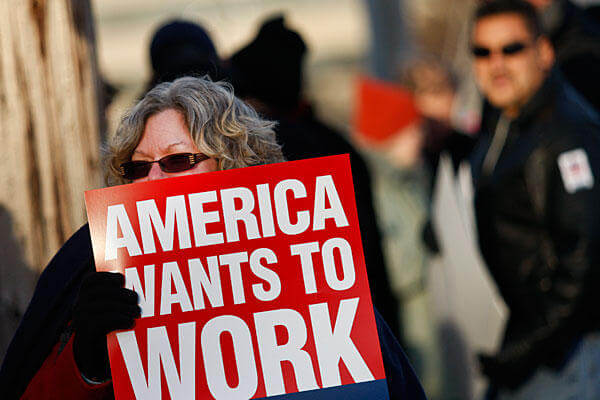The Americans are insisting on lawmakers to extend unemployment benefits as seeking a job becomes harder.
Lawmakers are facing new pressure to extend jobless benefits after groups supporting the measure have started on a new round of lobbying to persuade Congress to extend federal benefits to the long-term unemployed.
An allied group of advocates including the National Employment Law Project (NELP) held more than 40 meetings with lawmakers on Capitol Hill all through the first week if the lame-duck session to make their pitch for a $30 billion extension of the program.
Various labor union, civil rights and anti poverty groups have face a tough path to winning the extension at a time when lawmakers are seeking ways to lessen the budget deficit. Lawmakers started talks at the White House to avoid the nation from going over a so-called “fiscal cliff.”
But the groups are confident that they can succeed another extension, and received a shot of confidence this week when Sen. Charles Schumer (D-N.Y.) said stimulus measures must be included in any deficit-reduction package.
Judy Conti federal advocacy coordinator with NELP told, “People get it, understand why it’s important and why it could be so bad for their states”.
“We’re sensing a lot of support.”
Still, Conti and other groups are looking at the matter in the context of tax and spending that remain a main concern for lawmakers.
The groups are pressing for a 1 year extension of legislation accepted last February when Congress extended a payroll tax cut. The extension would offer a maximum of 47 weeks of federal benefits for those laid-off for more than 6 months.
Along with state-level benefits, the long-term jobless would have a minimum of 34 weeks of benefits and a maximum of 73 weeks.
Without action, 2.1 million people would be discontinued from benefits on December 29, 2012, the groups argue.
While the $30 billion price tax is pricey, supporters quarrel the cost could go down as state unemployment rates go down. The length of federal benefits is related to individual rates in states.
Some economists argue extending the benefits is a cheap price to pay provided the likelihood that costs will drop as state jobless rates fall.
“I would extend the emergency UI program as it is currently configured as it will fade away on its own as the very long-term unemployed exhaust their benefits and the economy improves and unemployment declines below the program’s thresholds,” said Mark Zandi, chief economist for Moody’s Analytics in an email to The Hill.
According to him, each week 30,000 people are falling off the rolls because of the dropping rates. He also argues that if the country financial gets worse – a particularly strong possibility if Congress takes no action to put off hikes and spending cuts from starting next year – rghe program could be mainly important.
“If the economy doesn’t improve as anticipated, then this will be an important program to have in place to offset any weakness,” he said.
This week a study by the left-learning Economic Policy Institute confirmed that continuing the extensions through next year would create spending to support 400,000 jobs.
Without a extension of the program, the economy would lose those jobs.
The report also approximates that the $30 billion would raise consumer spending and develop the economy by $48 billion, or about 0.3 percent.
